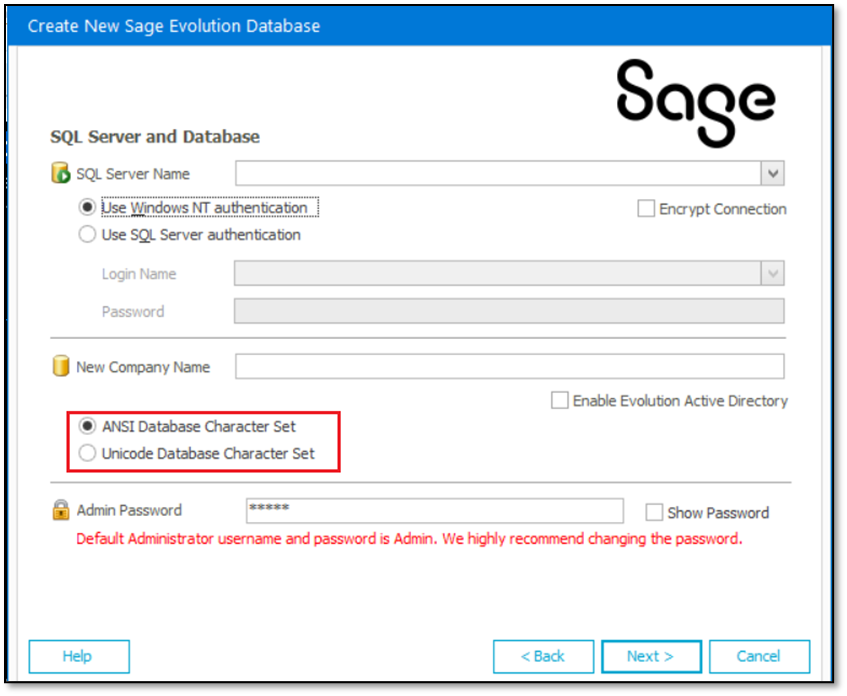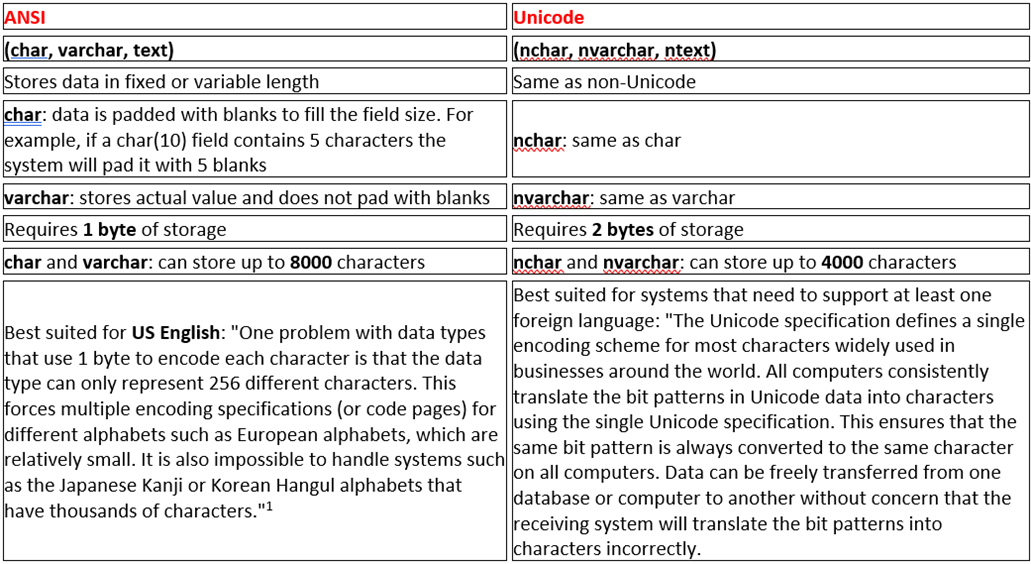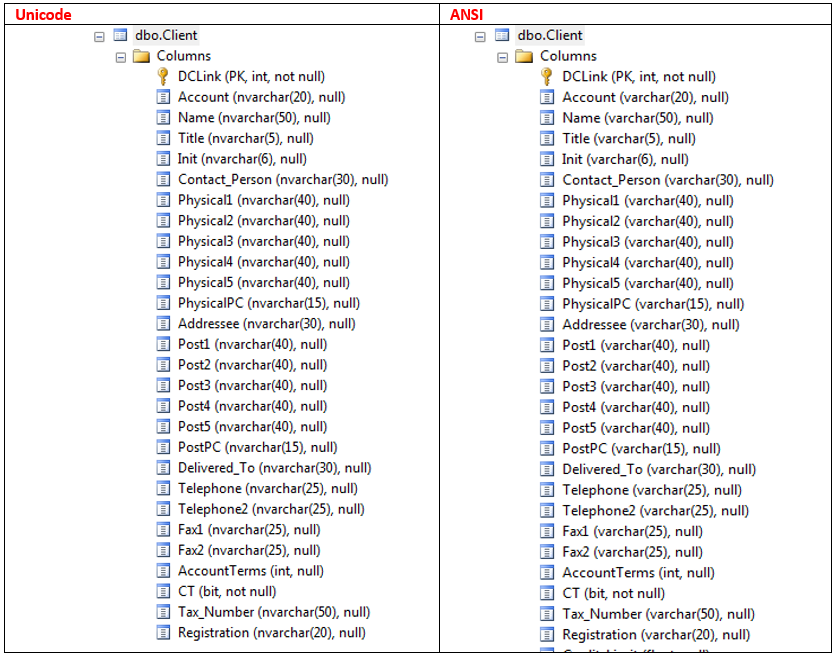Article Overview:
This article provides insight into the ANSI and Unicode Database character set options when creating a new Sage 200 Evolution company database.
You will have to select any of the two options marked below when creating a new company to determine the type of characters the Evolution company allows in any field.

Difference between ANSI and Unicode Character Sets
a) ANSI (American National Standards Institute)
ANSI characters can be any characters in the standard Western Alphabet (A to Z, a to z) as well as certain special characters such as ‘’, !,#,$,% etc.
In fact, these are characters that exist on the actual English, French, Portuguese or Spanish keyboards. We can also refer to it as Basic Latin Unicode.
b) Unicode
Unicode characters include all possible characters (across all alphabets) that exist globally. This includes, but is not limited to Arabic, Chinese, Greek, and Hebrew characters.
In the context of a SQL database, ANSI (Non-Unicode) and Unicode are differentiated by this illustrative table:

Sage 200 Evolution Tables structure:
Notice below the differences in the attributes/column types of an example company database table, when comparing an ANSI with a Unicode-created company database. In this example, we'll be referring to the Client table.
Also, note that char becomes nchar, varchar becomes nvarchar and text becomes ntext in Unicode.

MS SQL Server Unicode Compatibility Requirement:
Collation in a Unicode database
The specifically selected SQL Server Collation option should be aligned with the language of the convention that you intend to use.
For instance, if you are planning to use Arabic characters in your Evolution company, in conjunction with an Arabic Operating System, then install MS SQL with the Arabic-related Collation option.
If you use the incorrect MS SQL Collation option with certain Unicode characters, you may encounter a variety of error messages, performance and other issues while working in the Evolution company.
Also note that in general, MS SQL server Collations determine the rules on how data is sorted and compared which has a direct impact on your Evolution company.

